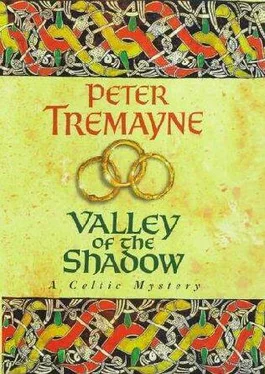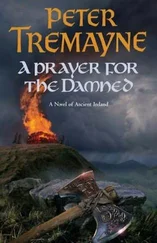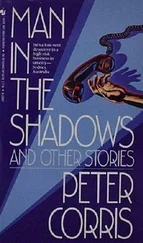Peter Tremayne - Valley of the Shadow
Здесь есть возможность читать онлайн «Peter Tremayne - Valley of the Shadow» весь текст электронной книги совершенно бесплатно (целиком полную версию без сокращений). В некоторых случаях можно слушать аудио, скачать через торрент в формате fb2 и присутствует краткое содержание. Жанр: Исторический детектив, на английском языке. Описание произведения, (предисловие) а так же отзывы посетителей доступны на портале библиотеки ЛибКат.
- Название:Valley of the Shadow
- Автор:
- Жанр:
- Год:неизвестен
- ISBN:нет данных
- Рейтинг книги:4 / 5. Голосов: 1
-
Избранное:Добавить в избранное
- Отзывы:
-
Ваша оценка:
- 80
- 1
- 2
- 3
- 4
- 5
Valley of the Shadow: краткое содержание, описание и аннотация
Предлагаем к чтению аннотацию, описание, краткое содержание или предисловие (зависит от того, что написал сам автор книги «Valley of the Shadow»). Если вы не нашли необходимую информацию о книге — напишите в комментариях, мы постараемся отыскать её.
Valley of the Shadow — читать онлайн бесплатно полную книгу (весь текст) целиком
Ниже представлен текст книги, разбитый по страницам. Система сохранения места последней прочитанной страницы, позволяет с удобством читать онлайн бесплатно книгу «Valley of the Shadow», без необходимости каждый раз заново искать на чём Вы остановились. Поставьте закладку, и сможете в любой момент перейти на страницу, на которой закончили чтение.
Интервал:
Закладка:
‘A trader in horses without horses? That requires some explanation.’
Undeterred, the young man chuckled.
‘Oh, but I do have a horse. I have brought a horse to sell.’
‘Just one?’ Murgal asked somewhat surprised. ‘It is a long journey from Muirthemne just to sell a single horse.’
‘True,’ Ibor assented. ‘But it is such a horse and it is such a price that I am expecting to raise! I expected to sell it for thirty séds .’
‘Thirty séds ?’ exclaimed Murgal. ‘A large sum for one animal.’
‘You said — expected?’ Fidelma said quickly.
‘I had heard that Eoganan, the chieftain of the Uí Fidgente, was looking for a thoroughbred horse and for an animal of great worth he would be prepared to pay a price that would make my journey worthwhile. I had found such an animal, a horse raised among the Britons which I brought to Éireann. I thought I would make the sum from Eoganán and it alone would recompense me for the long journey.’
Fidelma regarded him with suspicion.
‘But Eoganán was killed at the Hill of Áine six months ago.’
Ibor of Muirthemne raised his hands in a gesture of hopelessness.
‘That I only found out when I arrived in the country of the Uí Fidgente. There I found the new chieftain, Donnenach, trying to restore the shattered fortunes of his defeated people …’
‘Defeated by Fidelma’s brother, Colgú of Cashel,’ interposed Murgal maliciously.
‘After the Uí Fidgente under Eoganan had plotted Cashel’s overthrow,’ Fidelma replied in annoyance. It was not the first time that Murgal had tried to present Cashel’s defeat of the Uí Fidgente as if it were Cashel’s responsibility.
‘Yes, but I knew none of this,’ Ibor of Muirthemne pointed out disarmingly.
‘News does not take that long to travel to Muirthemne, surely?’ queried Fidelma.
‘I was in the kingdom of Gwynedd, among the Britons, when all this happened,’ protested Ibor. ‘I was there arranging the buying of horses. I returned to Ulaidh about a month ago and the news was so old that no one bothered to relate it. I took the horse that I had especially chosen and set out for the country of the Uí Fidgente …’
‘Wasn’t it difficult to bring a thoroughbred horse out of Ulaidh when the law of the Allmuir Sét would have stipulated its sale only within the boundaries of Ulaidh?’ asked Fidelma ingenuously.
The young man hesitated and then shrugged.
‘I had special dispensation from the king of Ulaidh,’ he explained hurriedly. ‘I did not learn the news about the defeat of the Uí Fidgente until I reached their lands where I had been expecting to find Eoganan.’
‘Then what brought you here? The Uí Fidgente live beyond the northern mountains,’ Fidelma asked.
‘I told you,’ the young man was a little aggrieved, ‘there was devastation and destruction there. No one wanted to barter for a thoroughbred horse when their cattle herds had been taken for fines. I did not want to take the horse north again and so I came here. One of the Uí Fidgente told me that Laisre of Gleann Geis was a shrewd judge of horse flesh.’
Fidelma turned to Laisre with curiosity.
‘And have you made a judgment on the beast?’
‘I have not seen the horse as yet. Ibor has just arrived and the horse is stabled below at Ronan’s farmstead. I shall see it within the next day or so once our guest has rested from his journey.’
‘Yes,’ agreed Ibor. ‘I promised Ronan’s woman, Bairsech, that I would return to bathe and refresh myself from my journey and I am already late. So forgive me, I must go now.’
‘I will escort you as far as Ronan’s farmstead,’ Murgal announced. ‘I need to go in that direction. My … my foster-daughter lives within Ronan’s hamlet.’
‘That is good of you, Murgal.’ The words were not reinforced by his tone of voice. The young man did not seem pleased to have Murgal’s company. He turned courteously to Fidelma. ‘I am honoured to have met you, Fidelma of Cashel.’
‘I am always interested in meeting a trader in horses, especially one who travels great distances to come to this small corner of the kingdom of Cashel.’
Together, he and Murgal left the ráth.
‘A personable young man,’ remarked Laisre as he and Fidelma stood watching them leave.
Fidelma was cynical.
‘A foolish young man.’ When she saw Laisre look at her questioningly, she continued: ‘It is a fool who rides alone through the country of the Uí Fidgente with a valuable horse in these turbulent times.’
‘Perhaps it is not so dangerous in the country of the Uí Fidgente as you may think,’ Laisre commented. ‘Brother Solin and his young acolyte were there a few days ago.’
Fidelma did not hide her reaction of surprise.
‘Brother Solin actually came here by way of the lands of the Uí Fidgente? Surely that was a curious choice of route?’
‘It is a logical route from the northern kingdoms,’ returned Laisre.
‘I suppose it is,’ Fidelma conceded reluctantly. ‘But not one that I would venture.’
‘My council and I will be gathering later this afternoon to iron out our differences and we may plan to resume our negotiation tomorrow before noon. I apologise once again for this morning. Murgal is an honest man but he is not yet convinced that tolerating the new Faith will bring us anything but a disappearance of our people. He fears the changes it will bring.’
‘It is an understandable attitude,’ accepted Fidelma. ‘However, Heraclitus once said that nothing is permanent in this life but change.’
Laisre smiled wanly.
‘A good saying but it will take much to change Murgal’s mind.’ He paused and then added: ‘We will have another feasting tonight.’
Fidelma winced slightly.
‘Perhaps you will excuse Brother Eadulf and myself?’
The chieftain frowned slightly. To refuse to attend a feast was approaching an insult. Fidelma knew the laws of hospitality. She went on hastily: ‘I am under a geis, a prohibition that on each day after the full moon, I must spend the evening with simple fare and in meditation of my Faith.’
Laisre’s eyes widened a little.
‘A geis , you say?’
Fidelma nodded seriously. A geis was an ancient prohibition, a taboo or a bond which, when placed on someone, compelled them to obey the injunction. The concept of the geis still survived in the Brehon Laws. The legendary warrior-hero of Ulaidh, Cúchulainn, had been given a geis never to eat the flesh of a dog. Trapped by his enemies, he eventually had to eat dog flesh and this infringement brought about his inevitable death. The ignoring or transgression of the prohibition exposed the one on whom the geis had been placed to rejection by society and would place them outside the social order.
Fidelma told the lie after the briefest struggle with her religious conscience. Did not the Brehon Morann say: ‘Never to lie is to have no lock to the door of your house. Mendacity is permissible as a means of protection from a greater evil.’ She knew that Laisre could understand and would not question such a prohibition.
‘Very well, Fidelma. I will press you no further.’
‘There is one thing, however …’ Fidelma stayed him.
‘You have but to ask.’
‘Is there a library at the ráth?’
‘Of course.’ Laisre seemed momentarily indignant. ‘It is not only Christians who keep libraries.’
‘I did not mean to imply otherwise,’ Fidelma pacified. ‘Where do I find this library?’
‘I will show you. It is, in fact, under Murgal’s control as my Druid and Brehon.’
‘Will he mind if I examine it?’
‘I am his chieftain,’ Laisre replied curtly in explanation.
Читать дальшеИнтервал:
Закладка:
Похожие книги на «Valley of the Shadow»
Представляем Вашему вниманию похожие книги на «Valley of the Shadow» списком для выбора. Мы отобрали схожую по названию и смыслу литературу в надежде предоставить читателям больше вариантов отыскать новые, интересные, ещё непрочитанные произведения.
Обсуждение, отзывы о книге «Valley of the Shadow» и просто собственные мнения читателей. Оставьте ваши комментарии, напишите, что Вы думаете о произведении, его смысле или главных героях. Укажите что конкретно понравилось, а что нет, и почему Вы так считаете.












